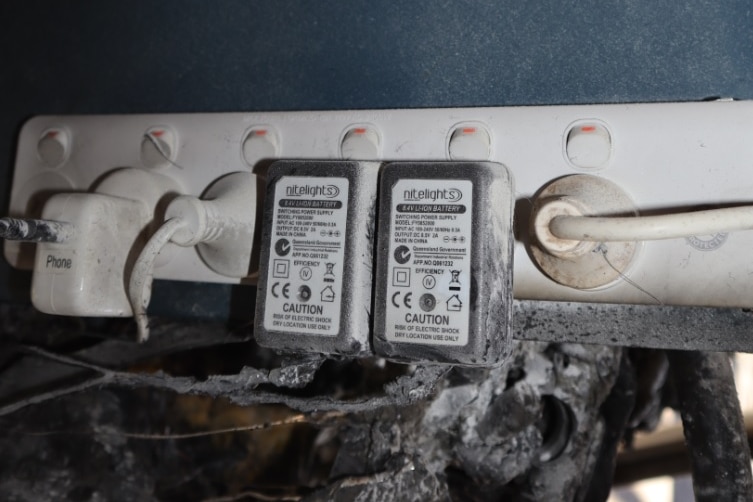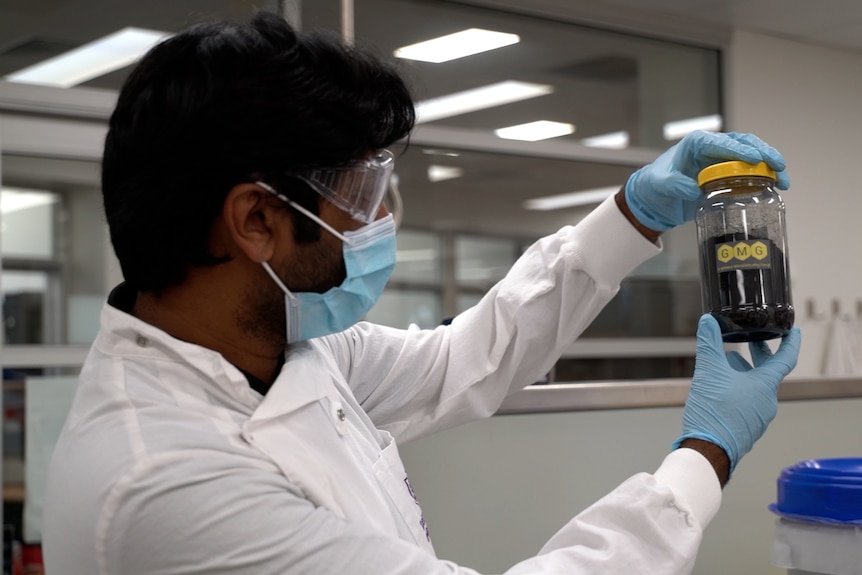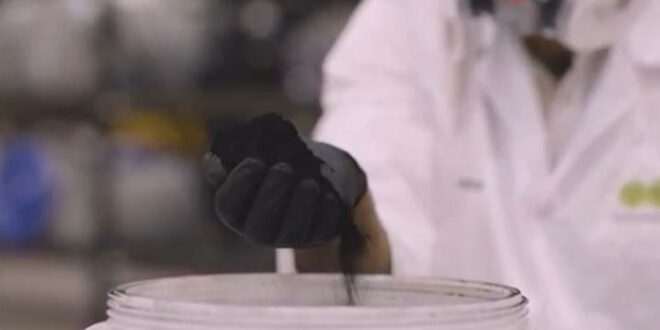A Brisbane company believes it can change the face of Australia’s energy landscape with an eco-friendly, carbon-neutral cell that charges 70 times faster than a lithium ion battery and can be reused thousands of times.
Key points:
- Brisbane’s Graphene Manufacturing Group says it is the only company in the world making its own graphene
- Graphene batteries are more stable than lithium batteries, which are used in many household items
- There is a growing need for investment in technology such as batteries to assist with solar energy storage
Founder and managing director of Graphene Manufacturing Group Craig Nicol said the company’s graphene aluminium ion battery was a world-leading piece of technology developed by the University of Queensland (UQ).
He said the business was the only one in the world making its own graphene — a nanomaterial made up of one layer of carbon atoms that is thin, strong and an excellent conductor of electricity — and had been working on the technology for six years.
“There’s a tech here that I think will really help with the energy transition, and so the Queensland government coming out and saying, ‘We want to push ahead’ is a huge step forward,” he told ABC Radio’s Rebecca Levingston.
“We need batteries of all different types to be able to manage the massive swings in electricity in the grid.
“Our battery we think is going to be a huge help, as we’ll be able to charge our battery many times a day, whereas lithium battery can really only do it once.”
Rapidly increasing use of solar energy has been putting pressure on Australia’s old energy grid infrastructure as demand for traditional sources of power plummeted over the past few months.
Energy Corporation of NSW board member Dr Alex Wonhas said there was a pressing need for more investment in technology such as batteries that could store energy generated by solar cells.
Opportunities for graphene batteries
Mr Nicol said their graphene battery was currently only on a laboratory production scale but there were many opportunities for their wider application in the future, with interest from drone applications and vehicles.
“All different companies want this type of tech that we have,” he said.
“The opportunities are vast, and not just what we think batteries are useful for now.
“There is so much potential if this transition actually is to take hold and and go through.”

Mr Nicol said the company had not made a AA battery yet but was working on a 2023 coin cell battery, which were used in remote controls and were safe for kids.
“We have done tests and we don’t think there are going to be any safety issues with our battery.
“These will also be cost-effective and you could gift this battery to your kids in the will, it’ll last that long,” he said.
Mr Nicol also said that graphene batteries were the future and could be charged and used thousands of times.
“It’s not like a lithium battery, which typically takes 500 cycles, and then it has to be replaced,” he said.
“Ours is effectively like a hybrid supercapacitor battery, which can be charged thousands of times.
“These are really world-leading as the last time anyone did anything on aluminium batteries was Stanford and ours is four times better than Stanford’s.”
Issues with lithium batteries
Mr Nicol said lithium batteries found in mobile phones, toys and even cars often had faults and there had been safety issues asociated with them.

“The aluminium atom which our battery used is far more stable than the lithium atom and that’s why lithium is often having problems,” he said.
“It was effectively built out of phones into cars and now some grid batteries, but it is a very unstable battery when it does come in touch with water or air.
“But we need lithium batteries just as much as every other opportunity out there and we need them all at scale to make this transition work.”
Australia a major exporter
Research fellow from UQ’s Australian Institute for Bioengineering and Nanotechnology Dr Xiaodan Huang said graphene batteries were lightweight, not flammable and a lot less expensive and more sustainable than lithium batteries.
“Lithium is a heavy metal which is expensive because raw material prices are high,” he said.
“Australia is a rich resource of graphene, aluminium and natural gas, which are more affordable and easier to recycle.
“We are trying to provide a different option for customers to choose as an alternative and as specialty technology for the Australian battery industry, because our batteries are imported from overseas companies.”
Deepak Dubal from the Queensland University of Technology’s Centre for Materials Science said Australia was one of the world’s biggest suppliers for minerals used in lithium batteries.
“Australia is the biggest supplier of lithium in the world and the second largest supplier of cobalt,” he said.

However, Dr Dubal said Australia did not really benefit from the export of lithium in batteries due to only focusing on one segment within the six segment battery value chain.
“We are not the biggest beneficiary in the lithium battery market as although Australia makes up 50 per cent of the market share for lithium exports, we are not producing the batteries ourselves,” he said.
“Australia only benefits 0.53 per cent of the total value chain.”
Dr Dubal predicted that in 10 years’ time, Australia could be exporting both raw lithium and graphene batteries.
 Unmanned Aerial Vehicle The latest drone news
Unmanned Aerial Vehicle The latest drone news




